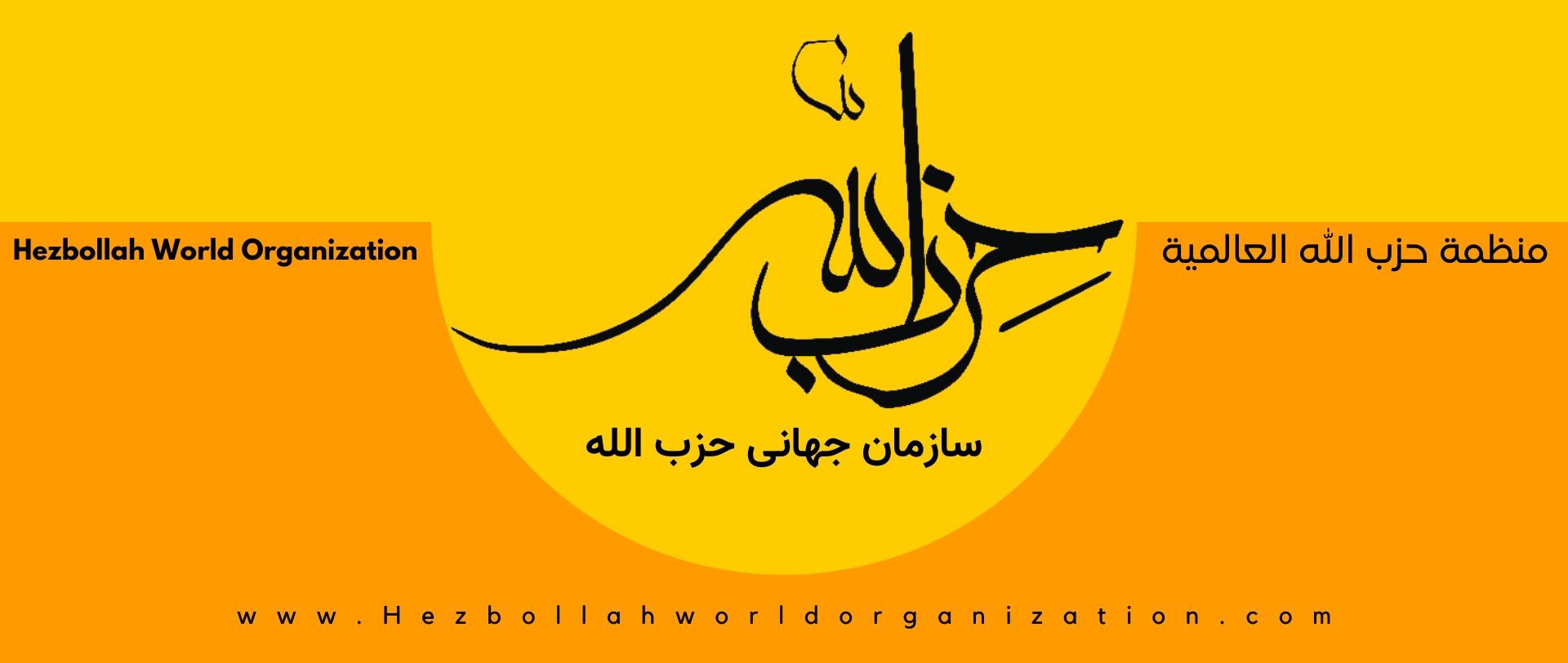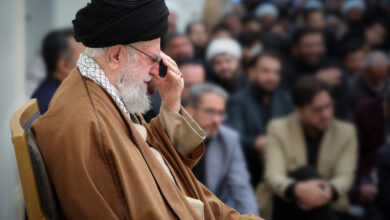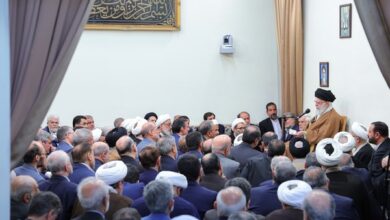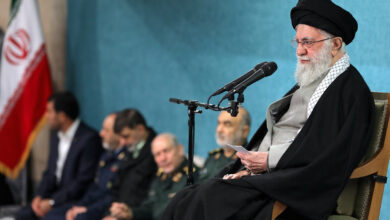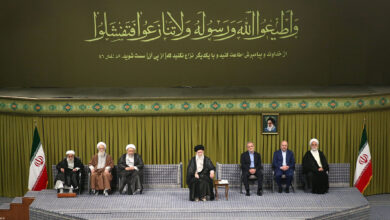The Authenticities/Principles and Foundations of the Leader’s remarks in the meeting with Hajj organizers and a group of pilgrims to the Sacred House of God
On 1404/02/14
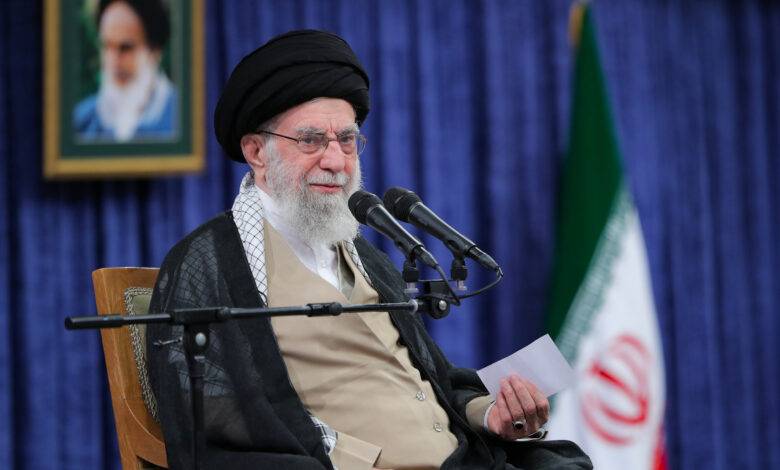
Table of Contents[1]
First: The Principle of the Natural Occurrence of Involuntary Incidents and Calamities in Wilayi (Guardianship-based) Governance
Second: The Principle of the Universality of the Invitation to Hajj and its Effects for all Humanity
Third: The Principle of the Divinely-Ordained and Prescribed Nature of Hajj and its Stewardship
Fourth: The Principle of Hajj Possessing a Political Framework Combined with Spiritual and Devotional Content
Fifth: The Principle of the Necessity of Utilizing the Wilayi Monotheistic Symbols of Hajj
Sixth: The Principle of the Necessity of Familiarizing Pilgrims and their Servants with the Wilayi Reality of Hajj
First: The Principle of the Natural Occurrence of Involuntary Incidents and Calamities in Wilayi Governance
- The principle of the occurrence of natural and inevitable incidents[2]
- The principle of the necessity of compensating for damages by executive bodies[3]
- The principle of the importance of patience and divine reward in calamities[4]
- The principle of the necessity of addressing incidents with the power and capability of executive bodies
- The principle of the necessity of patience in enduring the aforementioned calamities and incidents
- The principle of the necessity of seeking tranquility and serenity in the hearts of the afflicted
Challenges:
- The bitterness and gravity of the calamity for families[5]
- The severity and urgency of the need to compensate for damages[6]
- Reducing patience to a passive and merely consoling approach[7]
- Weakening the motivation to pursue and reform matters by over-relying on patience[8]
- Overlooking the role of structures and responsibilities by unilaterally emphasizing individual patience[9]
- The faintness of resorting to divine tranquility in facing social crises and collective incidents[10]
- The public sphere turning into excessive excitement, anger, or fear in the absence of spiritual tranquility[11]
- The need for cultural development to explain the role of prayer, supplication, and remembrance of God in calming grieving hearts[12]
Programs:
- Expressing condolences and sympathy with affected families[13]
- Taking swift and decisive action to compensate for damages[14]
- Emphasizing patience and divine reward for the afflicted[15]
- Explaining active patience instead of passive patience[16]
- Integrating patience with demanding reform and accountability[17]
- Raising awareness about the true meaning of patience in religious and revolutionary culture[18]
- Explaining tranquility and serenity as divine grace to console the afflicted[19]
- Cultural-promotional planning to present role models of patience combined with tranquility from Islamic history[20]
- Creating a spiritual atmosphere in centers related to crises and calamities to instill divine tranquility[21]
- Religious preachers accompanying afflicted families, focusing on seeking serenity and tranquility from God[22]
Second: The Principle of the Universality of the Invitation to Hajj and its Effects for all Humanity
- The principle of Hajj being a way to manage humanity
- The principle of the universal profitability of Hajj for all humanity
- The principle of Hajj having universal benefits for all human beings
Challenges:
- Not understanding the global and human dimensions of Hajj[23]
- Ignoring the political and social messages of Hajj[24]
- Insufficient attention to the role of unity in the dignity of the Islamic Ummah[25]
Footnotes:
[1] The Authenticity/Principles and Foundations from the Leader’s remarks during the meeting with Hajj organizers and a group of pilgrims to the House of God on 1404/02/14 (Persian Calendar: YYYY/MM/DD).
[2] Various incidents occur for organizations. Earthquakes, fires, destruction, intentional, unintentional, all sorts of things happen.
[3] Compensation will be made here too if a problem has occurred for the organizations, God willing, with urgency, with power, with the capability of our energetic, capable, and young executive bodies, it will be compensated.
[4] What burns one’s heart are the families, the families of the deceased, they have lost their loved ones… If we are patient in the various calamities of life, the reward that God Almighty will give us for this patience is thousands of times more valuable and important than the bitterness of that calamity.
[5] What burns one’s heart are the families, the families of the deceased, they have lost their loved ones.
[6] If a problem has occurred for the organizations, God willing, with urgency, with power, with the capability of our energetic, capable, and young executive bodies, it will be compensated.
[7] If we are patient in the various calamities of life, the reward that God Almighty will give us for this patience is thousands of times more valuable than the bitterness of that calamity.
[8] Patience is good, but if it causes us not to seek reform or not to hold anyone responsible, it is a problem in itself.
[9] By saying, “It just happened, let’s be patient,” the issue is dismissed.
[10] In critical situations, public opinion and even officials focus solely on physical and executive responses, and the calming role of prayer, trust in God, and divine serenity (sakinah) is neglected.
[11] The ineffective presence of Quranic and Wilayi literature in calming society leads to the spread of anxiety and psychological unrest.
[12] This culture must be spread at the level of media, pulpits, and religious education that true tranquility is achieved in the shadow of remembering God and trusting in Him.
[13] Let me offer condolences to the families of the deceased and the affected.
[14] If a problem has occurred for the organizations, God willing, with urgency, with power, with the capability of our energetic, capable, and young executive bodies, it will be compensated.
[15] If we are patient in the various calamities of life, the reward that God Almighty will give us for this patience is thousands of times more valuable and important than the bitterness of that calamity.
[16] Patience means resistance and perseverance alongside enduring hardship, not just mourning and expecting otherworldly rewards.
[17] We are patient, but at the same time, we demand answers from officials as to why this happened and how it will be compensated.
[18] Patience in the school of Ahl al-Bayt means steadfastness and movement, not just submission and absolute acceptance of conditions.
[19] The experience of Ashura and early Islamic events shows that at the height of calamity, divine grace in the form of serenity (sakinah) and tranquility flows into the hearts of believers.
[20] The narration of the lives of the Ahl al-Bayt (peace be upon them) and their loyal companions must be reread as a model of spiritual solace and tranquility amidst calamities.
[21] Using verses, supplications, and hopeful concepts in aid environments, hospitals, memorial ceremonies, and media to create a sense of tranquility.
[22] Encouraging the recitation of prayers and verses that bring peace to the heart, such as “Verily, in the remembrance of Allah do hearts find rest.”
[23] Hajj, an act of worship not only for Muslims, is a divine program for managing humanity.
[24] Hajj is an act of worship that has a political appearance and form. If this political appearance is not understood correctly, it will lose its characteristic and meaning.
For further information, please refer to the products section.
